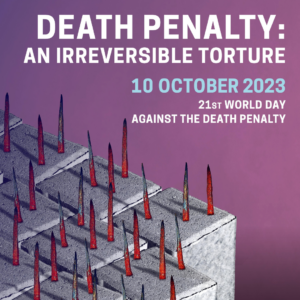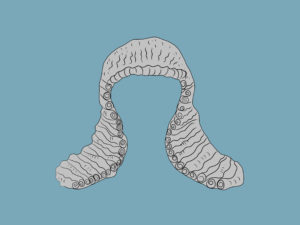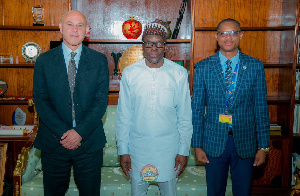Susan Kigula
Susan spent almost a decade under sentence of death in Uganda. She became the lead applicant in a case that led to the abolition of the mandatory death penalty in the country and was released in 2016.
Susan's story
In 2002 Susan Kigula, a young mother of a one year old child, was convicted of the murder of her husband.
Susan and her co-defendant, her housemaid, were both sentenced to death. At the time Uganda carried the mandatory death penalty for murder, meaning that the judge presiding over her trial was able to take into account mitigating factors in Susan’s case and impose a lesser sentence.
In 2003, following successful challenges to the death penalty in the Commonwealth Caribbean, The Death Penalty Project began working with FHRI Uganda and Ugandan lawyers (Katende, Ssempebwa & Company) to assist in preparing a constitutional challenge to the mandatory death penalty in Uganda. Susan Kigula was the lead applicant in this case, which was filed on behalf of everybody on death row in Uganda at the time, some 417 prisoners.
I felt betrayed by my own justice system. I felt abandoned by my own country. I felt so judged. I felt so demeaned and humiliated
Hopes and expectations
In preparation for the constitutional challenge our Co-Executive Directors Saul Lehrfreund and Parvais Jabbar travelled to Kampala with UK barrister Sir Keir Starmer QC, who provided pro bono assistance on the case, to meet the death row inmates involved. They described the experience at the time:
“…What happened in the next few hours will stay with us for the rest of our lives. We were greeted by a small group of death row prisoners, all in white shorts and white shirts, all wearing flip-flops. They introduced themselves and led us though to a small yard in the middle of the condemned section.
As we stepped through a small archway into the yard, we stopped in our tracks. Before us were all of the male prisoners on death row. Literally hundreds of men standing, sitting or squatting in a space no more than 10 yards by 25 yards. When they saw us they burst into song and clapped us as we took up our position, sitting on small benches that had been set up so that we could speak to all the inmates at once.
For three hours we sat in the hot sun, talking to the inmates about their case. Most thought that they had been brought into the condemned section for one reason and one reason alone: to be hanged. Unsurprisingly, the mood had been grim for many years. But their case had given them hope. They sang, they talked and they laughed. Having worked on similar cases elsewhere in the world, we thought we were fairly hardened, but no-one could have left that prison unmoved.”
Landmark judgment
The challenge was successful. In 2005, the Constitutional Court struck down the mandatory death penalty as violation of fundamental human rights and gave the government two years to re-sentence everyone on death row. The Court also found that a delay of more than three years in carrying out a death sentence was unconstitutional due to the mental suffering inflicted on the condemned prisoner. The Attorney General appealed the Constitutional Court’s decision but this challenge was unsuccessful and in 2009 the historic decision was affirmed by the Supreme Court. By the time of the Supreme Court judgment, the numbers of prisoners on death row had grown and it was estimated that there were around 900 prisoners who would benefit from the decision.
Following the Supreme Court’s decision Susan Kigula’s case was remitted to the High Court for re-sentencing. Susan’s re-sentencing hearing took place in 2011. For the first time the court was able to take into account factors such as her good character and the fact that she had no previous convictions in determining Susan’s sentence. She was re-sentenced to 20 years imprisonment. Bearing in mind remission for time already spent and good behaviour, Susan was released from prison in 2016.
A new start
Since her release, Susan has been a prominent advocate for abolition, travelling the world to speak about her experiences on death row. Susan is a global ambassador for the charity Justice Defenders (formerly African Prisons Project), who supported her to obtain a law degree when she was in prison.

Case Timeline
-
Susan is accused of murdering her husband and arrested
-
Susan is convicted of murder and sentenced to the mandatory death penalty
-
The Death Penalty Project begin working on a constitutional challenge to the mandatory death penalty
-
The Constitutional Court of Uganda declares the mandatory death penalty unconstitutional
-
The Supreme Court upholds the Constitutional Court’s judgment
-
Susan’s sentence is reduced to 20 years imprisonment
-
Susan Kigula is released from prison




















